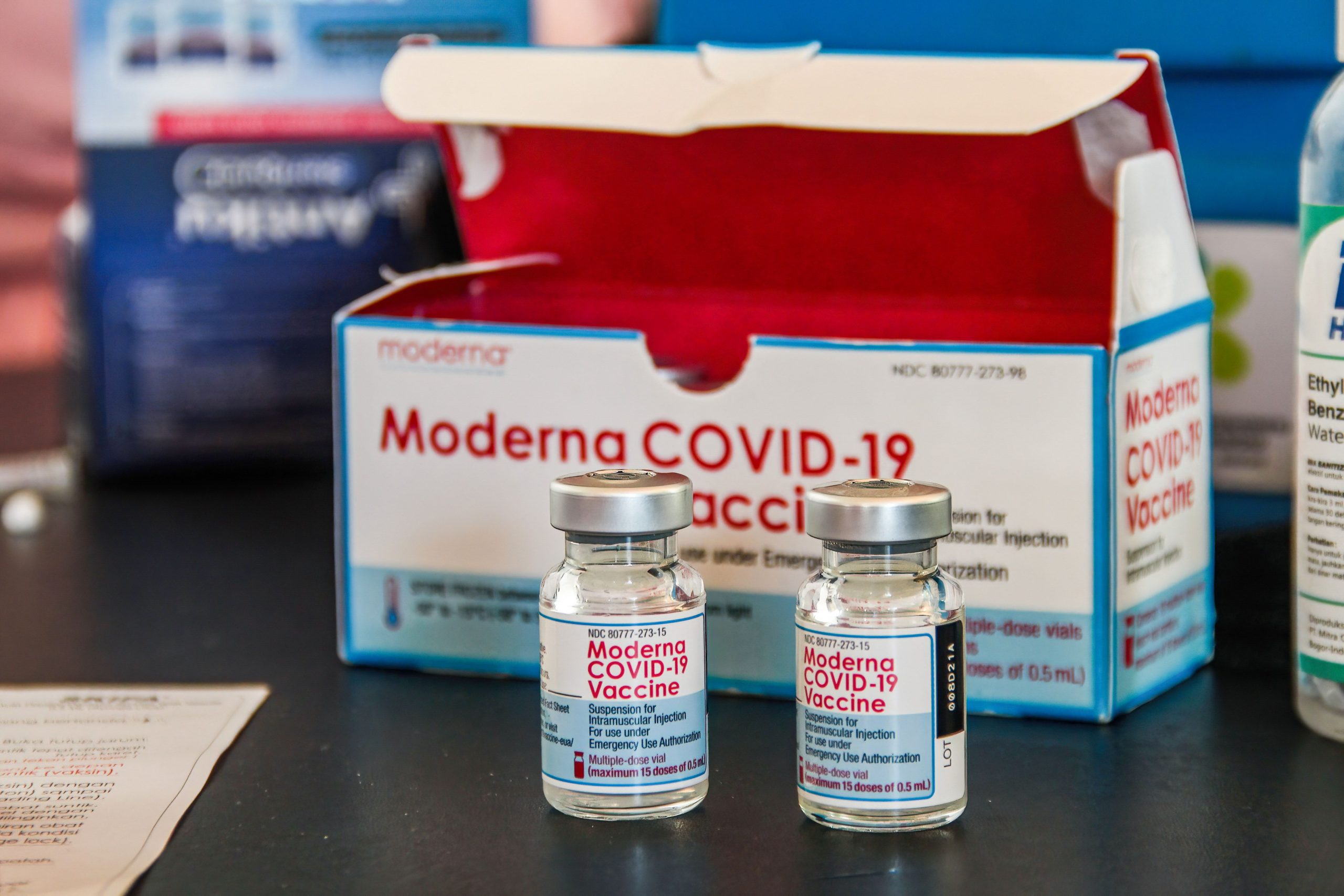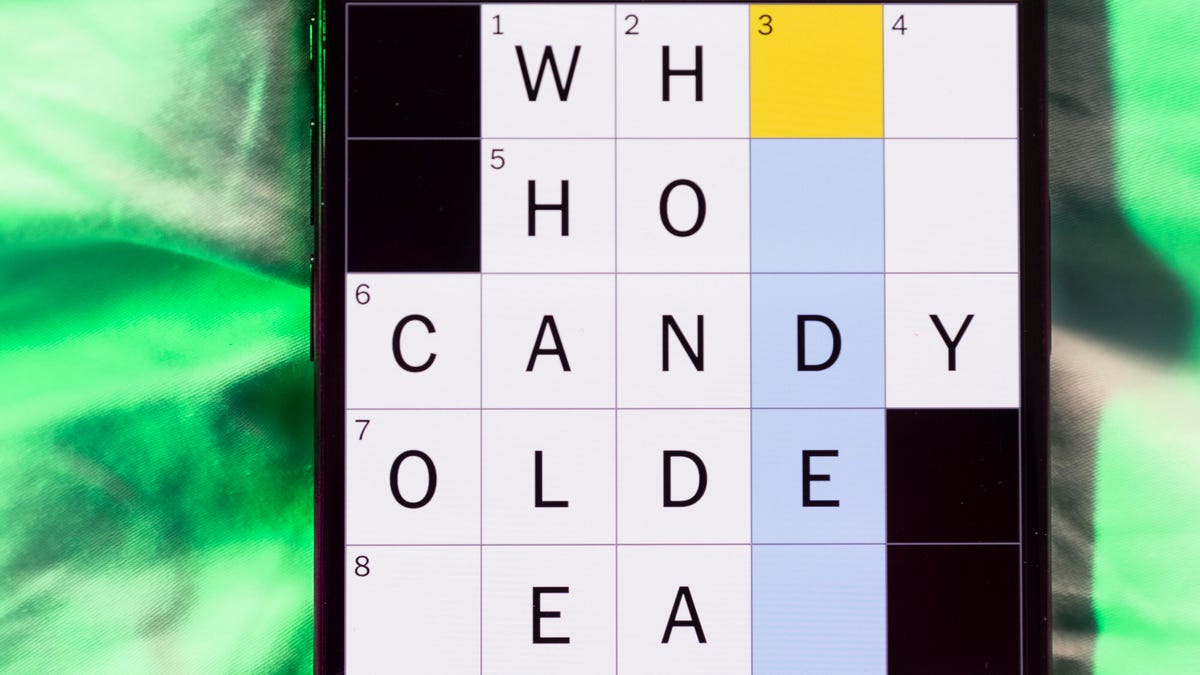Technologies
Moderna booster update: How much does it protect against omicron and for how long?
Research shows that mRNA vaccine boosters can defend against the omicron variant. However, one new study finds that protection decreases after 10 weeks.

New research from Denmark and the UK this week demonstrates that mRNA boosters — like Moderna’s and Pfizer’s — offer significant protection against the new omicron variant of COVID-19. However, data from the UK on Friday indicates that booster protection starts to decrease notably after 10 weeks.
In a technical briefing released Friday, the UK Health Security Agency announced that the Oxford/AstraZeneca, Pfizer/BioNTech and Moderna vaccines all protect against omicron less than they did against delta, and that protection from boosters wanes in time. Booster effectiveness generally decreased from 60% to 70% protection at two to four weeks after the shot, down to 35% to 45% at 10 weeks, depending on the combination of vaccines administered.
The UK report also adds weight to the hope that omicron infections are less severe than with the delta variant, noting that the risk of hospitalization from omicron is about three-fifths of that from delta.
In a report published Wednesday on the preprint site Medrxiv, scientists at Copenhagen’s Statens Serum Institut examined health records of 3 million Danes taken between Nov. 20 and Dec. 12. They found vaccine effectiveness among seniors 60 and older who had received a booster dose 14 to 44 days earlier averaged 54.6%, according to Reuters. (That’s comparable to the rate found shortly after receiving one shot of the Pfizer vaccine, which quickly wanes.)
Their research hasn’t been peer-reviewed yet, but it follows preliminary data from Monday indicating Moderna’s half-dose COVID booster shot can raise antibody levels against omicron 37 fold. Moderna President Stephen Hoge said during a conference call that the lab results were «reassuring» and put booster recipients «comfortably» above the level of a breakthrough risk.
Moderna also indicated a potential double dose of the booster, 100 micrograms versus 50 micrograms, would increase omicron-neutralizing antibodies «approximately 83-fold higher than pre-boost levels.»
Omicron has quickly become the dominant strain in the US, accounting for nearly 75% of new COVID-19 cases. While it appears able to evade some of the defenses offered by two doses of the Pfizer and Moderna vaccines, boosters offer some protection against infection and are highly effective in preventing serious illness.
«The good news is when you boost someone, [protection] goes right back up,» Dr. Anthony Fauci, chief medical adviser to President Joe Biden, said on CNN last week.
On Dec. 16, a CDC advisory committee recommended Moderna’s Spikevax and Pfizer-BioNTECH’s Comirnaty, both mRNA vaccines, over Johnson & Johnson’s one-jab carrier, or virus vector, vaccine.
According to Our World in Data, the US averaged about 840,000 booster shots per day for the week ending Dec. 17, and more than 64 million Americans have been boosted since Aug. 13. The increased focus on boosters comes as the omicron variant forces the CDC, health officials and organizations to reconsider what it means to be «fully vaccinated.» President Biden recently announced new plans — including «free» at-home COVID-19 test kits and stricter rules for international travelers — to protect Americans from the surging omicron variant.
The CDC urges anyone 18 years or older to get a booster six months after their second dose of Moderna or Pfizer (and anyone 16 or 17 years old to get a booster six months after their second dose of Pfizer).
So far, the vaccines have proven highly effective in preventing serious reactions and death from COVID-19. People who are unvaccinated are 10 times more likely to be hospitalized if infected. With the federal vaccine mandate expected to start next month, the Biden administration expects even more Americans to get the jab. The government has also ordered 13 million courses of antiviral drugs in anticipation of higher caseloads this winter.
Here’s what you need to know about the Moderna booster, including doses, side effects and how to get a free ride. to your vaccination appointment. For even more details, here’s the latest on COVID-19 vaccines for kids, how you can soon get a free COVID-19 test kit and what to know about breakthrough infections.
How effective is the Moderna booster against the omicron variant?
On Monday, Moderna’s Hoge said early lab research shows the pharmaceutical company’s COVID-19vaccine booster provides «good protection against the omicronvariant» by raising antibody levels approximately 37 fold. Forcomparison, Pfizer said earlier this month its booster raises antibody levels 25 fold,creating «robust protection» and offering «a sufficientlevel of protection» against omicron.
Studies of omicron variant infections in the US appear to support the concern about weakened protection for those who are fully vaccinated with two doses of the Moderna and Pfizer vaccines or one of Johnson & Johnson’s, but did not get a booster yet. Dr. Rochelle P. Walensky, CDC director, said Dec. 10 that80% of the first confirmed US cases with the mutated strain had been in patients who were fullyvaccinated.
Is Moderna working on additional COVID vaccine boosters?
On Monday, Moderna president Stephen Hoge said the company’s current 50-microgram COVID booster gives «quite respectable» protection. The company is continuing to study an omicron-specific vaccine and a multivalent one that could protect against other variants, including the alpha and delta strains, in case either is needed.
The company said it is also studying a 100-microgram version of its current vaccine booster, which appears to raise antibody protection 83 fold. Hoge said Moderna could have new versions of its vaccine ready early in 2022 but is not planning to ask the CDC and FDA to amend its booster authorization for the 100-microgram trial version of its booster.
Will we need an annual COVID booster shot?
With vaccines appearing to offer waning protectionand a continuing evolution of COVID variants, Hoge said we will most likely needseasonal boosters, much like we do with the flu, at least toprotect those at high risk of infection. The new research from UKHSA strongly indicates reduced protection from vaccine boosters after 10 weeks.
The CDC updated its guidanceto indicate that, starting in 2022, some immunocompromised people will be able to get afourth COVID-19 booster shot.
When is it time to get a COVID-19 vaccine booster shot?
If you got Moderna or Pfizer jab, you’re eligible for a booster six months after the date of the second shot listed on yourvaccination card. Two months after the Johnson & Johnson vaccine is the time for a booster (more below).
The CDC and other health authorities are now urging people to get boosters as soon as they’re eligible, to keep the immune response againstomicron, delta and other coronavirus variants of concern as strong as possible.
On Dec. 2, President Biden outlined a plan forMedicare to contact the 64 million people it serves and for AARP toreach out to its 38 million members about getting a booster shot. Pharmacies like Walgreens,CVS and Rite Aid are contacting customers who got a vaccine attheir stores when it’s time to schedule a booster.
Should people who are pregnant get a booster shot?
The COVID-19 booster recommendations apply to all people 18 years and older, including those who are pregnant. The CDC urges pregnant people to get a COVID-19 vaccine, a booster is half a full vaccine dose.
«People who are pregnant or recently pregnant are more likely to get severely ill with COVID-19 compared with people who are not pregnant,» the CDC says on its website.
While there is no evidence that getting vaccinated decreases fertility in women or men, a recent study also linked COVID-19 infection in pregnant people to a higher risk of stillbirth.
Is the Moderna booster shot a third dose of the vaccine?
Booster shots of COVID-19 vaccines are currently half doses of the same vaccine used in the first two full shots. The goal is to top up the formula and reinforce the body’s immune response against the virus and its variants. While the first two shots of the Moderna vaccine were each 100 micrograms, the booster is a 50-microgram dose.
Moderna is also working on a combination shot that contains this year’s flu vaccine and its COVID-19 booster vaccine, but that’s not available right now.
How do I know which pharmacies have Moderna booster shots available?
Boosters are available at roughly 80,000 locations across the US, including over 40,000 pharmacies. Some 90% of Americans have a vaccine site within five miles of where they live.
A free service backed by the CDC sends you information on vaccine sites when you text your ZIP code to this number: 438829. The response will show you COVID-19 vaccine locations in your area, along with the brands they carry for certain age groups, for instance, Moderna 18+. This can save you from having to call around, or show up to an appointment to find that your booster of choice isn’t available. The text message also offers a shortcut to make your appointment right from your phone screen.
In addition, you can check Vaccines.gov to see which vaccines are available where, or call 800-232-0233 for additional vaccine information.
How can I get a free ride to get my booster shot?
Lyft and Uber are offering free rides for some people who need them. An easy way to access those links for more information is through the text feature above. You can also go to Lyft.com/vax or call Uber at 855-921-0033.
Who can get a Moderna booster shot right now?
On Nov. 19, all US adults 18 and older became eligible to receive COVID-19 booster shots if it’s been at least six months since they’ve received a second dose of either the Moderna or Pfizer vaccine. Those who received the Johnson & Johnson vaccine are eligible for a booster dose after two months. Adults are encouraged to get whatever booster dose is available, even if that means mixing and matching vaccine boosters (more below).
What are the side effects of Moderna’s booster?
Moderna says possible side effects for its booster shot are similar to those from the two primary doses, and include pain or swelling at the injection site, as well as fatigue, muscle pain, headache, fever, chills and nausea.
The good news is, according to the CDC, those who got the Moderna booster dose reported far fewer reactions than they did after the second dose of the vaccine.
Is it safe to mix and match vaccine and booster brands?
Yes. The US Food and Drug Administration has authorized mixing COVID-19 boosters, which in the US means Moderna and Pfizer. Any adult eligible for a booster can get any of the available brands of coronavirus vaccines. If you initially received Johnson & Johnson and it’s been two months or longer since you received the initial dose, you’ll be able to get the Moderna or Pfizer booster. If you received Moderna or Pfizer for your first two shots, you could pick any authorized vaccine available to you, if you qualify and it’s been six months or longer since your second shot.
In its study, the CDC found 95% of those who got Moderna for the first round of vaccine shots chose Moderna for the booster dose.
Is the Moderna COVID-19 booster shot still free?
All booster shots will be free, regardless of immigration or health insurance status. However, depending on where you get your booster shot — for example, at a local pharmacy — you may be asked to provide your insurance card information, including your name, date of birth and membership number. But ou will not be charged for your COVID-19 vaccine or booster shot.
What does the Moderna booster shot do?
As the vaccine’s effectiveness decreases over time, a COVID-19 booster shot — whether from Moderna, Pfizer or Johnson & Johnson — recharges your body’s immune response and guards against a breakthrough infection.
Recent studies of the Pfizer and AstraZeneca vaccines show that their effectiveness can begin to wane after six months. Moderna said early data suggests that those who received the Moderna vaccine in 2020 are showing a higher rate of breakthrough COVID-19 infections than those vaccinated this year, suggesting the need for a booster to maintain high levels of protection.
For more on coronavirus treatments and vaccines, here’s what we know about monoclonal antibody treatments, the new federal vaccine mandates and why some people may not want the shot.
The information contained in this article is for educational and informational purposes only and is not intended as health or medical advice. Always consult a physician or other qualified health provider regarding any questions you may have about a medical condition or health objectives.
Technologies
Today’s NYT Connections: Sports Edition Hints and Answers for Feb. 18, #513
Here are hints and the answers for the NYT Connections: Sports Edition puzzle for Feb. 18, No. 513.

Looking for the most recent regular Connections answers? Click here for today’s Connections hints, as well as our daily answers and hints for The New York Times Mini Crossword, Wordle and Strands puzzles.
Today’s Connections: Sports Edition has a fun yellow category that might just start you singing. If you’re struggling with today’s puzzle but still want to solve it, read on for hints and the answers.
Connections: Sports Edition is published by The Athletic, the subscription-based sports journalism site owned by The Times. It doesn’t appear in the NYT Games app, but it does in The Athletic’s own app. Or you can play it for free online.
Read more: NYT Connections: Sports Edition Puzzle Comes Out of Beta
Hints for today’s Connections: Sports Edition groups
Here are four hints for the groupings in today’s Connections: Sports Edition puzzle, ranked from the easiest yellow group to the tough (and sometimes bizarre) purple group.
Yellow group hint: I don’t care if I never get back.
Green group hint: Get that gold medal.
Blue group hint: Hoops superstar.
Purple group hint: Not front, but…
Answers for today’s Connections: Sports Edition groups
Yellow group: Heard in «Take Me Out to the Ball Game.»
Green group: Olympic snowboarding events.
Blue group: Vince Carter, informally.
Purple group: ____ back.
Read more: Wordle Cheat Sheet: Here Are the Most Popular Letters Used in English Words
What are today’s Connections: Sports Edition answers?
The yellow words in today’s Connections
The theme is heard in «Take Me Out to the Ball Game.» The four answers are Cracker Jack, home team, old ball game and peanuts.
The green words in today’s Connections
The theme is Olympic snowboarding events. The four answers are big air, giant slalom, halfpipe and slopestyle.
The blue words in today’s Connections
The theme is Vince Carter, informally. The four answers are Air Canada, Half-Man, Half-Amazing, VC and Vinsanity.
The purple words in today’s Connections
The theme is ____ back. The four answers are diamond, drop, quarter and razor.
Technologies
Today’s NYT Mini Crossword Answers for Wednesday, Feb. 18
Here are the answers for The New York Times Mini Crossword for Feb. 18.

Looking for the most recent Mini Crossword answer? Click here for today’s Mini Crossword hints, as well as our daily answers and hints for The New York Times Wordle, Strands, Connections and Connections: Sports Edition puzzles.
Today’s Mini Crossword is a fun one, and it’s not terribly tough. It helps if you know a certain Olympian. Read on for all the answers. And if you could use some hints and guidance for daily solving, check out our Mini Crossword tips.
If you’re looking for today’s Wordle, Connections, Connections: Sports Edition and Strands answers, you can visit CNET’s NYT puzzle hints page.
Read more: Tips and Tricks for Solving The New York Times Mini Crossword
Let’s get to those Mini Crossword clues and answers.
Mini across clues and answers
1A clue: ___ Glenn, Olympic figure skater who’s a three-time U.S. national champion
Answer: AMBER
6A clue: Popcorn size that might come in a bucket
Answer: LARGE
7A clue: Lies and the Lying ___ Who Tell Them» (Al Franken book)
Answer: LIARS
8A clue: Close-up map
Answer: INSET
9A clue: Prepares a home for a new baby
Answer: NESTS
Mini down clues and answers
1D clue: Bold poker declaration
Answer: ALLIN
2D clue: Only U.S. state with a one-syllable name
Answer: MAINE
3D clue: Orchestra section with trumpets and horns
Answer: BRASS
4D clue: «Great» or «Snowy» wading bird
Answer: EGRET
5D clue: Some sheet music squiggles
Answer: RESTS
Technologies
The Witcher 3, Kingdom Come Deliverance 2 Bring the Heat to Xbox Game Pass
Two amazing games will be available soon for Xbox Game Pass subscribers.

The second half of February and early March could be considered one of the best stretches in recent memory for Xbox Game Pass subscribers. The Witcher 3: Wild Hunt, widely regarded as one of the best games of the past decade, and Kingdom Come: Deliverance 2 headline a lineup that leans heavily into sprawling, choice-driven adventures but does throw in some football to mix things up a bit.
Xbox Game Pass offers hundreds of games you can play on your Xbox Series X, Xbox Series S, Xbox One, Amazon Fire TV, smart TV, PC or mobile device, with prices starting at $10 a month. While all Game Pass tiers offer you a library of games, Game Pass Ultimate ($30 a month) gives you access to the most games, as well as Day 1 games, meaning they hit Game Pass the day they go on sale.
Here are all the latest games subscribers can play on Game Pass. You can also check out other games the company added to the service in early February, including Madden NFL 26.
The Witcher 3: Wild Hunt – Complete Edition
Available on Feb. 19 for Game Pass Ultimate and Premium Game Pass subscribers.
The Witcher 3 came out 10 years ago, and it’s still being praised as one of the best games ever made. To celebrate, developer CD Projekt Red is bringing over The Witcher 3: Wild Hunt Complete Edition to Xbox Game Pass. Subscribers will be able to play The Witcher 3 and its expansions, Hearts of Stone and Blood and Wine. Players once more take on the role of monster-slayer Geralt, who goes on an epic search for his daughter, Ciri. As he pieces together what happened to her, he comes across vicious monsters, devious spirits, and the most evil of humans who seek to end his quest.
Death Howl
Available on Feb. 19 for Game Pass Ultimate, Game Pass Premium and PC Game Pass subscribers.
Death Howl is a dark fantasy tactical roguelike that blends turn-based grid combat with deck-building mechanics. Players move across compact battlefield maps, weighing positioning and card synergies to survive increasingly difficult encounters. Progression comes through incremental upgrades that reshape each run. Battles reward careful planning, as overextending or mismanaging your hand can quickly end a run.
EA Sports College Football 26
Available on Feb. 19 for Game Pass Ultimate subscribers.
EA Sports College Football 26 delivers a new take on college football gameplay with enhanced offensive and defensive mechanics, smarter AI and dynamic play-calling that reflects real strategic football systems. Featuring over 2,800 plays and more than 300 real-world coaches with distinct schemes, it offers expanded Dynasty and Road to Glory modes where team building and personnel decisions matter. On the field, dynamic substitutions, improved blocking and coverage logic make matches feel more fluid and tactical.
Dice A Million
Available on Feb. 25 for Game Pass Ultimate and PC Game Pass subscribers.
Dice A Million centers on rolling and managing dice to build toward increasingly higher scores. Each round asks players to weigh risk against reward, deciding when to bank points and when to push for bigger combinations. Progression introduces modifiers and new rules that subtly shift probabilities, making runs feel distinct while keeping the core loop focused on calculated gambling.
Towerborne
Available on Feb. 26 for Game Pass Ultimate, PC, and Premium Game Pass subscribers.
After months in preview, Towerborne will get its full release on Xbox Game Pass. The fast-paced action game blends procedural dungeons and light RPG progression, with players fighting through waves of enemies. You’ll unlock permanent upgrades between runs and equip weapons, spells and talents that change how combat feels each time. The core loop pushes risk versus reward as you dive deeper into tougher floors, adapting builds on the fly, and mastering movement and timing to survive increasingly chaotic battles.
Final Fantasy 3
Available on March 3 for Game Pass Ultimate, Premium and PC Game Pass subscribers.
Another Final Fantasy game is coming to Xbox Game Pass. This time, it’s Final Fantasy 3, originally released on the Famicom (the Japanese version of the NES) back in 1990. Since then, Final Fantasy 3 has been ported to a slew of devices and operating systems, including the Nintendo Wii, iOS and Android. Now, you’ll be able to play on your Xbox or PC with a Game Pass subscription. A new group of heroes is once again tasked with saving the world before it’s covered in darkness. Four orphans from the village of Ur find a Crystal of Light in a secret cave, which tasks them as the new Warriors of Light. They’ll have to stop Xande, an evil wizard looking to use the power of darkness to become immortal.
Kingdom Come: Deliverance 2
Available on March 3 for Game Pass Ultimate, Premium and PC Game Pass subscribers.
Last year was stacked with amazing games, and Kingdom Come: Deliverance 2 was one of the best. Developer Warhorse Studios’ RPG series takes place in the real medieval kingdom of Bohemia, which is now the Czech Republic, and tasks players with a somewhat realistic gaming experience where you have to use the weapons, armor and items from those times. The sequel picks up right after the first game (also on Xbox Game Pass) as Henry of Skalitz is attacked by bandits, which starts a series of events that disrupts the entire country.
Games leaving Game Pass in February
For February, Microsoft is removing four games. If you’re still playing them, now’s a good time to finish up what you can before they’re gone for good on Feb. 28.
For more on Xbox, discover other games available on Game Pass now, and check out our hands-on review of the gaming service. You can also learn about recent changes to Game Pass.
-

 Technologies3 года ago
Technologies3 года agoTech Companies Need to Be Held Accountable for Security, Experts Say
-

 Technologies3 года ago
Technologies3 года agoBest Handheld Game Console in 2023
-

 Technologies3 года ago
Technologies3 года agoTighten Up Your VR Game With the Best Head Straps for Quest 2
-

 Technologies4 года ago
Technologies4 года agoBlack Friday 2021: The best deals on TVs, headphones, kitchenware, and more
-

 Technologies5 лет ago
Technologies5 лет agoGoogle to require vaccinations as Silicon Valley rethinks return-to-office policies
-

 Technologies5 лет ago
Technologies5 лет agoVerum, Wickr and Threema: next generation secured messengers
-

 Technologies4 года ago
Technologies4 года agoOlivia Harlan Dekker for Verum Messenger
-

 Technologies4 года ago
Technologies4 года agoiPhone 13 event: How to watch Apple’s big announcement tomorrow
